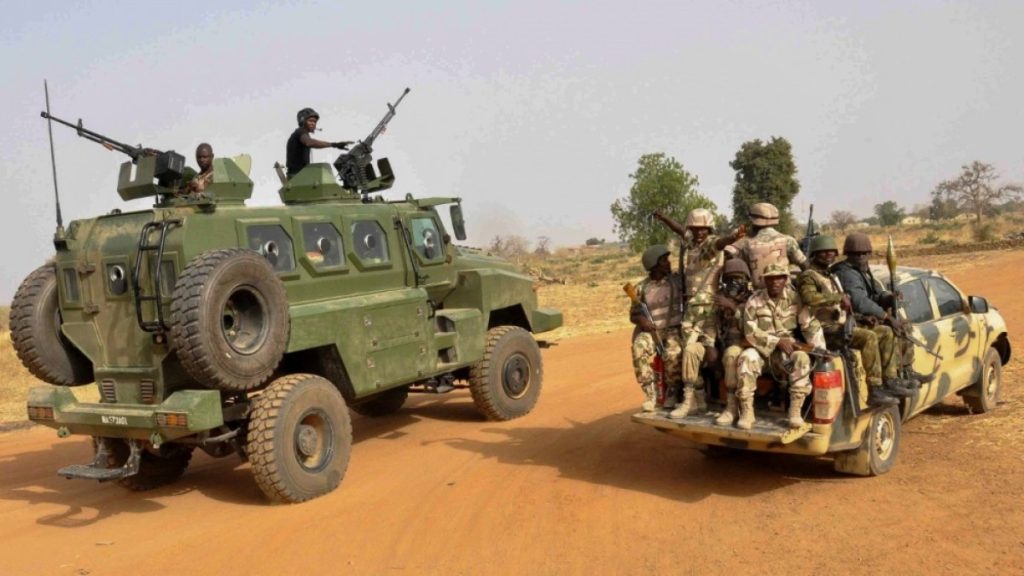The remote town of Malam-Fatori in Nigeria’s northeastern Borno state became the scene of a devastating attack on Friday, as suspected fighters from the Islamic State West Africa Province (ISWAP), an affiliate of ISIL, targeted a Nigerian Army base. The assault, which reportedly lasted for more than three hours, resulted in the tragic deaths of at least 20 Nigerian soldiers, including a lieutenant colonel, the commanding officer of the 149th Battalion stationed at the base. The attack underscores the persistent threat posed by extremist groups in the region, despite ongoing military efforts to counter their operations. Malam-Fatori, a strategic town near the border with Niger, serves as a gateway between the two countries, highlighting the regional implications of the escalating violence.
The attack unfolded with the ISWAP fighters arriving in gun trucks and launching a coordinated assault on the unsuspecting soldiers. A surviving soldier, who spoke to Reuters on condition of anonymity, described the chaos and intensity of the firefight. The attackers “rained bullets everywhere,” taking the soldiers by surprise and overwhelming their defenses despite a valiant three-hour resistance. The soldier confirmed the death toll of 20 and mentioned that several others sustained injuries during the prolonged gun battle. The attackers’ ability to penetrate the army base and inflict such heavy casualties raises serious concerns about the security situation in the region.
The aftermath of the attack saw the ISWAP fighters remaining in Malam-Fatori for an extended period, even being sighted as late as Saturday night. Residents who fled the town recounted witnessing the fighters burning buildings and terrorizing the local population. According to Malakaka Bukar, a member of a local militia assisting the army, the ISWAP fighters also engaged in forced preaching to some of the remaining residents, demonstrating their intent to exert ideological influence and control over the area. The destruction of property and the forced indoctrination tactics further highlight the devastating impact of the insurgency on the civilian population.
This latest attack highlights the persistent threat posed by both Boko Haram and its offshoot, ISWAP, in northeastern Nigeria. While the Nigerian military, along with regional forces, has made significant strides in combating these groups, the insurgents continue to demonstrate their capacity to launch deadly attacks, particularly against vulnerable targets like military bases and civilian communities. The increasing frequency of these attacks underscores the need for sustained and enhanced counter-insurgency strategies to effectively address the root causes of the conflict and prevent further loss of life.
The prolonged conflict in northeastern Nigeria, now spanning over 15 years, has had a devastating impact on the region. Nearly 40,000 people have lost their lives, and approximately two million have been displaced from their homes, creating a humanitarian crisis of immense proportions. The instability and violence have also spilled over into neighboring countries like Niger, Chad, and Cameroon, necessitating the formation of a regional force to combat the spread of extremism. The Malam-Fatori attack serves as a stark reminder of the fragility of security in the region and the ongoing need for international cooperation to address the complex challenges.
The attack in Malam-Fatori highlights the complex security challenges facing Nigeria and the broader Lake Chad region. The resurgence of Boko Haram and ISWAP activities, despite ongoing counter-insurgency operations, underscores the need for a multi-faceted approach that addresses not only the military aspects of the conflict but also the underlying socio-economic factors that contribute to the recruitment and radicalization of individuals. The international community must continue to support the Nigerian government and regional forces in their efforts to combat these extremist groups and provide humanitarian assistance to the affected populations. Ultimately, a lasting solution will require a comprehensive strategy that encompasses security measures, economic development, and social reconciliation to build a more stable and resilient region.

